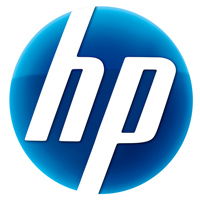Palm-HP: Microsoft bites bigtime

Hewlett-Packard on Wednesday pulls out $1.2 billion and goes all in with a bet for Palm. Most analysts say the buyout is for Palm's WebOS operating system. While PC-market fingers will point to Apple and its iPhone OS as the potential losers, the real dunce cap must be placed on Microsoft. And the winner? Apple.
The deal must be worrying executives and coders alike in Microsoft's Windows 7 and its Kin-based Windows Phone teams. And even down the hall with the Singularity OS, shown a couple of years ago at Research Techfest 2008.
Certainly, such a solid technology partner as HP has been deeply involved in evaluating Microsoft's OS road maps. For example, it was Steve Ballmer himself who took the wraps off of HP's Slate tablet computer at CES in January. At the demonstration, the device ran Windows 7.
Check out HP Slate with webOS: The potential iPad rival from HP's acquisition of Palm
HP must also be well acquainted with Microsoft's Kin phone strategy. Here are several relevant items on Kin from Mary-Jo Foley's All About Microsoft blog.
Kin phones make use of the “same core elements as Windows Phone 7.” The Kin isn’t a dumbed-down Windows Phone (as we’d been hearing it might be). Kin phones have Exchange connectivity, Zune music/video capabilities and dedicated Bing search buttons, just like Windows Phone 7 phones will.
There are no apps for the Kin. No app marketplace and nothing other than the Kin service which will connect users to their Facebook, Twitter, MySpace and Kin Studio (cloud services collection). At least for now, there are no plans to introduce apps for the Kin devices.
Yet, a few months after the Ballmer introduction of the Slate, HP is making moves to ditch Windows 7 for its tablet/reader devices. And in another rejection of the Redmond sauce, the Kin OS, HP appears ready to use the Palm WebOS for its smart phones and tablets. Ouch, harsh!
According to Wayne Rash at the CTOEdge blog the Palm-HP mix is the "perfect pairing."
So here’s what the future could hold. Palm uses its well designed iPaq hardware to run the Palm OS, and for a change gets a competitive smart phone. The Pre and the Pixi either get re-engineered by HP into something more useful, or they fade away. Meanwhile, HP’s tablet gets an OS suitable for a portable device.
Perhaps HP will take a lesson from Apple and the iPad: that users prefer a simpler non-windowing environment for these tablet devices instead of any flavor of the traditional Windows desktop interface.
So, why is Apple the winner? Microsoft's technology brand takes another hit. No doubt, HP will take a while to integrate WebOS into its product lines. When the Slate comes out, Apple will dominate the tablet and e-reader market (actually, it already has). And in the meantime, Apple will rollout a new version of its mobile OS this summer, and perhaps prep another rev for a year's time. Apple has shown that it has a coherent technology and market strategy for its technologies and can execute on them, something that no PC company seems capable of.
[If you're interested in a bit of history about Apple and BeOS, the predecessor to Palm's WebOS, check out my post Who should be thanked for the return of Mr. Jobs to Apple? It runs down Apple's negotiations for BeOS in 1996.]
